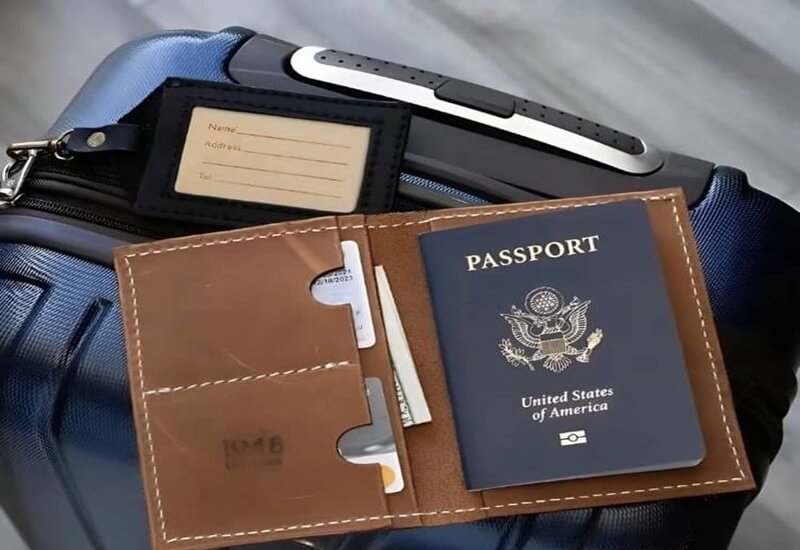Adjustment Of Status Lawyer Helps In Section 245(i)
Navigating U.S. immigration can feel like solving a complex puzzle, especially when aiming for legal status. For non-citizens, Section 245(i) can be the missing piece in this challenging journey, offering a potential path to permanent residency. This provision may enable you to adjust your status without the need to leave the country.
This article explores the key qualifications for Section 245(i) and which petitions qualify. Learn how an adjustment of status lawyer can determine your eligibility, helping you complete the puzzle and navigate the process confidently.

Overview Of INA Section 245(i) With An Adjustment Of Status Lawyer
Before 1994, undocumented immigrants in the United States generally could not adjust their status to become lawful permanent residents (LPRs). Those who entered unlawfully had to leave the country and apply for permanent residency from a U.S. consular office abroad.
Congress changed this by adding subsection (i) to Section 245 of the Immigration and Nationality Act (INA). This provision allows qualifying individuals to adjust their status to LPRs while remaining in the country. It offers significant relief to those eligible for an immigrant Visa and who pay the required fee.
Understanding Section 245(i) is essential for noncitizens wanting to adjust their status without leaving the country. Since its enactment in 1994, this provision has seen extensions and revisions. Therefore, knowing the key dates that could affect your eligibility becomes essential.
Important Dates Affecting Eligibility
Section 245(i) became effective on October 1, 1994, and provided new opportunities for undocumented immigrants to adjust their status. Key legislative changes extended the benefits but also added strict deadlines. On December 21, 2000, the LIFE Act Amendments were enacted, marking the last extension of Section 245(i).
The most important date to remember is April 30, 2001. Individuals must have a family or employment-based petition or labor certification filed before that date to qualify. Additionally, those who filed between January 15, 1998, and April 30, 2001, must have been physically present in the U.S. on December 21, 2000.
These critical dates often catch potential applicants off guard and determine whether someone can adjust their status under Section 245(i). While the provision has not been expanded since 2001, its relevance remains for many immigrants. If Congress ever advances the April 30, 2001 deadline, it could open new doors for many noncitizens in the U.S.
Petitions That Qualify For Section 245(i)
You need a valid petition or labor certification to qualify for the Section 245(i) provision. Several types of petitions meet the criteria.
- Family-Based Petitions: Filed by U.S. citizens or LPRs on behalf of their qualifying immediate relatives.
- Employment-Based Petitions: Submitted by U.S. employers seeking to sponsor foreign nationals to live and work in the country.
- Labor Certification Applications: Formal requests made to the U.S. Department of Labor (DOL) as part of employment-based immigrant Visa applications.
Applicants must file these petitions properly and approvable when submitted to the United States Citizenship and Immigration Services (USCIS). Only valid and legally compliant petitions at the time of filing become eligible for Section 245(i) adjustment. USCIS will disqualify submissions with deficiencies, such as missing fees or absent original signatures.
However, these are just the general requirements. More specific qualifications are outlined for beneficiaries who may still benefit from Section 245(i). Understanding them further can provide more clarity to your circumstances.
Current Eligibility Criteria For Beneficiaries
You must meet specific eligibility criteria for a Green Card through Section 245(i). First, you must be a current beneficiary of a qualifying immigrant petition or labor certification. This can be either the original petition that qualifies you for Section 245(i) or a new one filed later.
If your petition was filed between January 15, 1998, and April 30, 2001, you must prove physical presence in the U.S. on December 21, 2000. Unless exempt, you must also pay the $1,000 penalty fee required for Section 245(i) adjustment.
Additionally, you must be admissible to the U.S. or qualify for a waiver of inadmissibility. You should also be free from other disqualifying factors, such as certain criminal convictions or prior deportation orders. Your case must present a favorable exercise of discretion, meaning the positive aspects of your case must outweigh any negative factors.
Sometimes, your spouse and children may also be eligible to adjust their status as dependents under Section 245(i).
The road to lawful permanent residence can be tricky, but understanding these criteria is a necessary step in the journey. An immigration attorney can assess your eligibility and streamline your application for a smoother process.
Immigration Attorney Provides A Lifeline
Navigating the Section 245(i) provision within immigration law entails high stakes for those seeking to adjust their status. An experienced immigration attorney helps you understand your qualifications and ensure your case is handled correctly from start to finish. Here are vital ways a lawyer can assist you through the process.
Assessing Eligibility
Determining your eligibility for permanent resident status through Section 245(i) is a critical step. The process involves a detailed review of your immigration history. Many individuals may be unsure if a family or employment petition was filed for them or if they were in the U.S. on December 21, 2000.
An immigration attorney can examine your records, locate old petitions, and verify whether your case meets the necessary criteria. They check as many details as possible, clarifying whether you can pursue adjustment. It becomes particularly important for those with complex situations, such as multiple petitions or cases that have been inactive for years.
Handling Documentation & Filing
Adjusting your status under Section 245(i) requires careful attention to paperwork. You must file several forms, including Form I-485 and Supplement A. Mistakes or missing information in these forms can lead to delays, requests for additional evidence, or even denial of your case.
An attorney ensures that all forms are complete, accurate, signed correctly, and filed on time. If applicable, they will help you gather necessary documents, such as proof of your physical presence in the U.S.. By managing every step correctly, a lawyer helps avoid common pitfalls and increase your chances of success.
Preparing For Interviews & Requests
Adjusting your status often involves interviews with an immigration official and responding to Requests for Evidence (RFEs). Both stages can be challenging and require thorough preparation. An immigration attorney can coach you on potential interview questions and guide you in presenting your case effectively.
Lawyers can also help you respond to RFEs by gathering additional documentation or clarifying information requested by USCIS. Proper preparation and prompt responses are necessary for a seamless process.
Overcoming Complications
If you have a criminal history, previous deportations, or other legal issues, you will need an attorney’s guidance more than ever. These factors can disqualify you from adjusting your status unless you qualify for waivers or other forms of relief. For example, if you have past convictions or prior deportations, you may need to apply for a waiver of inadmissibility.
An attorney helps you gather supporting evidence and present your case effectively. With the proper legal counsel, you can go through the critical steps effectively and enhance your chances of avoiding denial or additional legal issues.
Advocating For Favorable Outcome
Applying for adjustment of status under Section 245(i) involves more than just filing the correct forms. It also requires immigration officers to exercise discretion. Your attorney must demonstrate that the positive aspects of your case outweigh any negative factors, such as unlawful presence or other immigration violations.
Lawyers build a strong case for you by highlighting your ties to the U.S., family situation, employment history, and other factors that can work in your favor. They will ensure that your application showcases your situation in the most favorable light, increasing your chances of approval.
An immigration attorney can impact your application under Section 245(i). One mistake can lead to delays or denials, but with legal assistance, you can significantly increase your chances of obtaining permanent resident status.
Lincoln-Goldfinch Law – Abogados de Inmigración Helps Achieve Legal Status
Lincoln-Goldfinch Law – Abogados de Inmigración advocates for immigrants seeking permanent resident status through Section 245(i). We handle each case with professionalism and compassion, understanding that every client’s journey is unique. Our legal team provides practical solutions and supports you throughout the adjustment of status process.
We confirm eligibility, file petitions, and manage complex cases. With extensive experience, we help you handle the paperwork, avoid errors, and ensure compliance with all legal requirements. Committed to keeping families together, we offer guidance that can greatly impact your path to legal status.
By taking a tailored and comprehensive approach to Section 245(i) cases, we strive to make your journey to permanent residency smooth and successful. You can rely on our dedication to helping you secure a brighter future with your loved ones in the United States.
Summary
Section 245(i) offers hope to many undocumented immigrants seeking permanent residency. You must be a beneficiary of a qualifying immigrant and satisfy other specific eligibility criteria to qualify. If you’re unsure about your status under Section 245(i), seek legal advice to clarify your situation.
Lincoln-Goldfinch Law – Abogados de Inmigración can be your guide through the adjustment of status process. Our experienced team will help determine your eligibility, manage complex paperwork, address challenges, and work toward a favorable outcome.
Contact A U.S. Immigration Attorney Today!
Categories
How To Find Us
What Our Clients Say
“This Lawfirm is great, very professional and helpful. I love that they are always in communication and always available for when you have questions . 100% recommended by me and my family. Thank you Lincoln-Goldfinch Law – Abogados de Inmigración”





